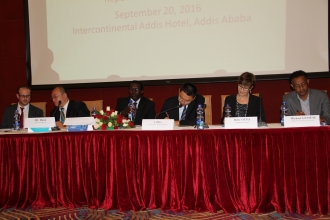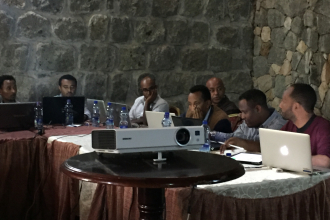
The effect of improved biomass cook-stoves on indoor air pollution and respiratory health in rural Ethiopia
The Environment and Climate Research Center (ECRC) of the Ethiopian Development Research Institute (EDRI) organized a half-day research project launch workshop on “The effects of improved biomass cook…



